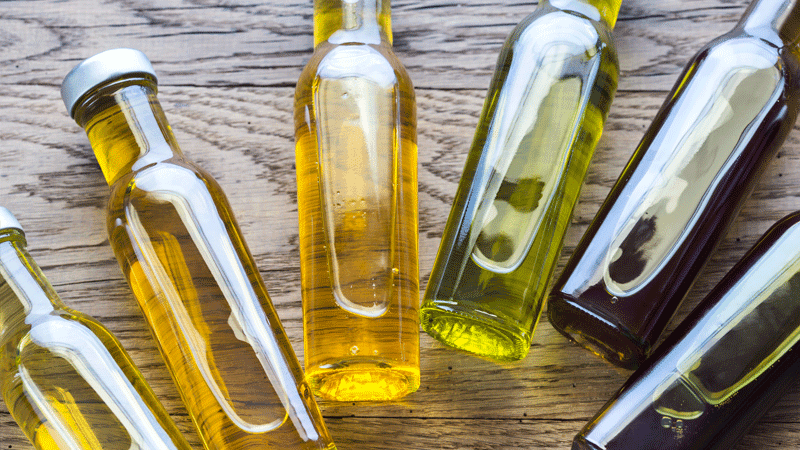How should I dispose of my cooking oil? This is one question that most kitchen moms ask, each time they’ve had to cook with lots of cooking oil or grease.
While most people decide that disposing of oil through the sink is the best option, they end up paying heavily with the plumbing repair costs.
Therefore, pouring your oil in the drain is not an option. Neither is pouring the oil outside or on your compost pile. Why? Because the cooking oil and grease become harmful to the plants and animals. It may also find its way back to your pipes or drains or sewers.
Therefore, what is the best way of disposing your used cooking oil without harming the animals or environments? Below are a few ways you can try:
1. Reuse your Oil.
Although used cooking oil may not be the most efficient form of oil to use in the kitchen, it can still be reused to cook one or two meals.
As long as your oil didn’t boil beyond its boiling point, you will be good to reuse it. However, before doing anything, your first step should be allowing the oil to cool down and settle. After that, you can transfer it and store it to whatever containers they want.
If you suspect that the oil is bad, you can confirm this by smelling it to see if it produces any smell. The reused oil can be used for baking and deep-frying.
2. Recycle with your collection company.
Used cooking oils can be used to serve different purposes, such as making biofuels and other byproducts. There are several companies which are involved in used oil recycling.
These companies can make something useful out of your used grease and cooking oil. However, you need to ensure that you give the right company your oils. When choosing your company, ensure that they are licensed, experienced and certified.
You can also decide to look into their operations online to see their ratings, and to ensure that the company uses your oil for their stated facts. Handing your waste oil to the wrong company may lead to environmental pollution.
3. Store the cooking oil containers in a secure area.
Storage containers that used to have the cooking oils need to be stored away from the drains and faucetsto ensure that none of oil spills into the drains.
A good way of storing is by first ensuring that all your waste oils and grease is stored in sealed airtight containers. This will not only prevent spillage, but the airtight containers will prevent the spread of a bad odor from the containers.
You can do this for hot oils and grease, where you can just cool them and pour them into the containers.
4. Solidify what you can
If your used cooking oil can solidify, the better. This will allow you to quickly put the fats and grease in the freezer until it hardens. After that, you can comfortably dispose it in the garbage bin.
However, ensure that even if it has solidified, you have wrapped in a plastic bag before you throw it away. Doing this will ensure that there’s no leakage.
You should also ensure that even the small portions of the grease and oil that could be left on your utensils is wiped away quickly.
5. Read Your Building rules
Different buildings may have different policies on how the used cooking oils should be disposed of. Therefore, ensure that before you begin disposing it, you have all the rules right.
If you are in a restaurant, then you have to train your workers to ensure that none of the used cooking oils and grease ends up in the drains.
Conclusion.
Disposing of your used cooking oil appropriately will mean that you won’t have to call your plumber every time. It also means that your house will be devoid of fouls smells from poor disposal of used oil.
The best way of disposing your used cooking oil is by handing it over to a recycling company. It not only saves the environment, but you can also earn some extra cash in the process!
Therefore, the next time you think of disposing your used cooking oil, ensure that you dispose it appropriately!






